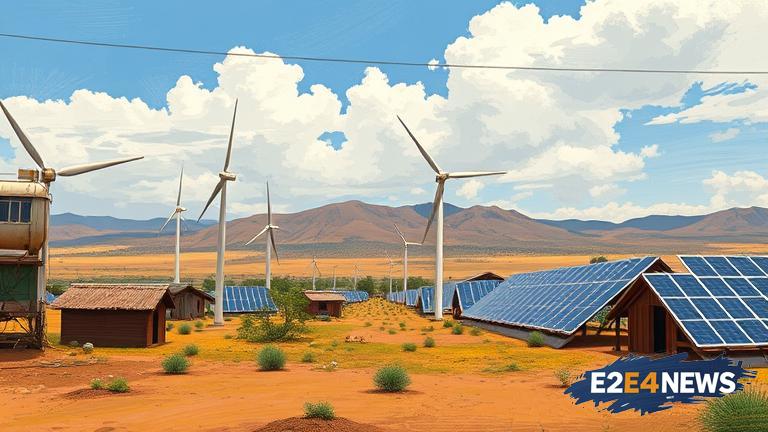The African continent is witnessing a significant shift towards renewable energy, driven by the need to address the pressing issues of energy access, energy security, and climate change. With a growing population and increasing economic activities, the demand for energy is on the rise, and renewable energy is emerging as a viable solution. Solar and wind power are the most prominent forms of renewable energy in Africa, with countries like South Africa, Egypt, and Morocco leading the way. The cost of renewable energy technologies has decreased dramatically over the years, making them more competitive with fossil fuels. This has led to an increase in investments in the renewable energy sector, with many international companies and organizations committing to support Africa’s energy transition. The African Union’s Agenda 2063 and the United Nations’ Sustainable Development Goals (SDGs) have also played a crucial role in promoting renewable energy in Africa. The African Development Bank has launched several initiatives to support the development of renewable energy in Africa, including the New Deal on Energy for Africa. The bank has committed to investing $12 billion in the energy sector over the next five years, with a focus on renewable energy. Many African countries have set ambitious targets to increase their share of renewable energy in the energy mix, with some aiming to generate up to 100% of their electricity from renewable sources. However, despite the progress made, there are still significant challenges to be addressed, including the lack of infrastructure, limited access to financing, and the need for policy and regulatory frameworks that support the development of renewable energy. The private sector is also playing a crucial role in driving the growth of renewable energy in Africa, with many companies investing in solar and wind farms, as well as other forms of renewable energy. The use of renewable energy is not only reducing Africa’s dependence on fossil fuels but also creating jobs and stimulating local economies. In addition, renewable energy is helping to reduce greenhouse gas emissions and mitigate the impacts of climate change. The African continent is rich in renewable energy resources, with abundant sunshine, wind, and hydro resources. The development of renewable energy in Africa is also being driven by the need to address energy poverty, with many communities lacking access to modern energy services. Renewable energy is providing a solution to this problem, with off-grid solar systems and mini-grids being used to provide energy access to remote and underserved communities. The growth of renewable energy in Africa is also being driven by the increasing demand for energy from industries such as mining, manufacturing, and agriculture. The use of renewable energy is helping to reduce the costs of energy for these industries, making them more competitive and increasing their productivity. Furthermore, renewable energy is also being used to power homes, schools, and healthcare facilities, improving the quality of life for millions of people across the continent. In conclusion, the renewable energy revolution in Africa is gaining momentum, driven by the need to address energy access, energy security, and climate change. With the right policies, investments, and technologies in place, Africa can transition to a low-carbon economy, driving growth, creating jobs, and improving the lives of its citizens.
